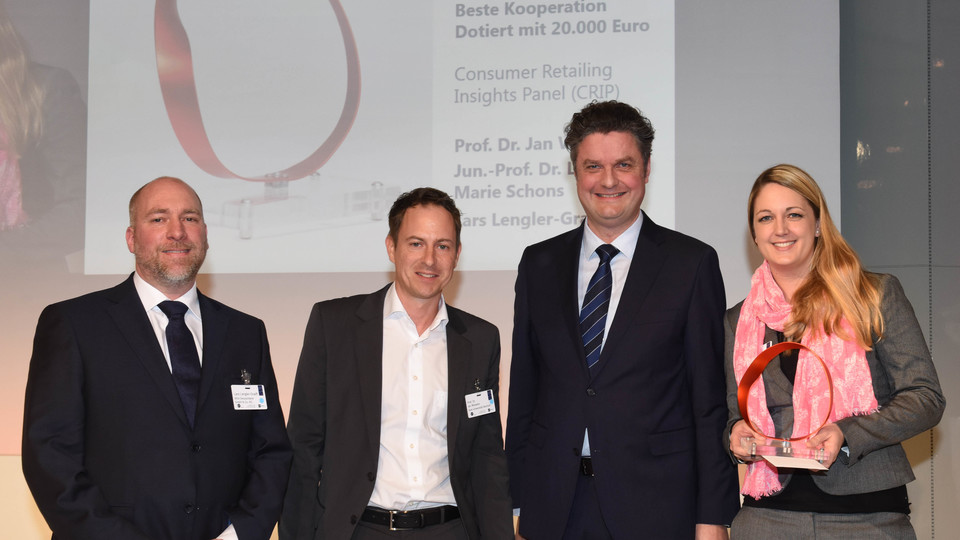Mannheim, 26.02.2016 – Laura Marie Schons, Assistant Professor of Corporate Social Responsibility at the University of Mannheim, Business School, was awarded the German Science Award “Best Cooperation“.
Private businesses are increasingly engaging in activities referred to as Corporate Social Responsibility (CSR) activities. To illustrate, consider the fact that Microsoft donated more than $1 billion to charitable causes in 2015. However, day-to-day, managers face manifold unanswered questions concerning the right design and communication of their CSR engagements.
How should companies weigh the diverse and often conflicting expectations and claims of their company-internal and external stakeholder groups? Should they involve their stakeholders in CSR-related decisions or should they merely inform them about their CSR strategy? And more importantly: how should they talk about their good deeds? “CSR communication is a double-edged sword: on the one hand, surveys have revealed that company-external stakeholders as customers and the wider public wish to know more about companies’ CSR and despite many companies’ effort to make their CSR transparent, CSR awareness is typically very low. On the other hand, speaking louder to be heard could be a dangerous choice as skepticism towards CSR communication is steadily on the rise,” explains Professor Schons.
CSR communication is a double-edged sword: CSR awareness is typically very low, but speaking more prominently about it could lead to skepticism
Lars Lengler-Graiff, Multichannel Market Intelligence Specialist at the international furniture retailer IKEA, partnered with Jan Wieseke and Laura Marie Schons to tackle these questions, amongst others. Together with a team of post-docs and PhD students they conducted a research cooperation that sets new standards in CSR research. They jointly identified a set of research questions with a high level of managerial and conceptual relevance and invited 240,000 IKEA customers to participate in a panel survey covering eight time points (approx. one year). During this one year they collected customers’ perceptions of IKEA’s CSR and their overall attitudes towards and experiences with the brand and merged this survey data with data from various other sources, as e.g. scanner-panel data on real purchase volume, media tracking data, and data from additional interviews with the managers of the local stores.
The collected data revealed many surprising results, for IKEA as well as for the researchers. Some of these results have recently been published in international top journals (including the Journal of Marketing, the Journal of Business Ethics, and the Journal of the Academy of Marketing Science). Some other striking insights are still under review.
The majority of customers is highly skeptical of CSR communication – companies should rather take an “inside-out approach”
The basic tenor of the results can be summarized as follows: a large proportion of customers (approx. 75%) is highly skeptical of CSR communication and does not blindly believe the benefits of CSR. Customer perceptions of CSR are a lot more complex than often assumed. Customers are well aware of the fact that CSR activities cause costs on the side of the company that could well be factored into the prices that they pay. If customers perceive these CSR engagements to be mere “window-dressing”, important customer outcomes such as customer loyalty may deteriorate. Furthermore, companies should take an “inside-out approach” to the design of their CSR strategy. “IKEA’s CSR engagement within the own company, i.e., taking care of their own employees, lead to much stronger positive reactions than CSR engagements that were unrelated to the core value chain activities of the company,” says Professor Schons. Also, when communicating their good deeds, companies also need to be aware of their customers’ skepticism in the form of their persuasion knowledge. If the company for instance uses manipulative communication tactics such as storytelling (which is frequently featured in CSR communication), this may even lower customers’ loyalty. “They pause to think: ‘Why is the company trying to sell me their CSR?’ and conclude that the CSR engagement may merely be driven by the wish to increase profits,” states Professor Schons.
